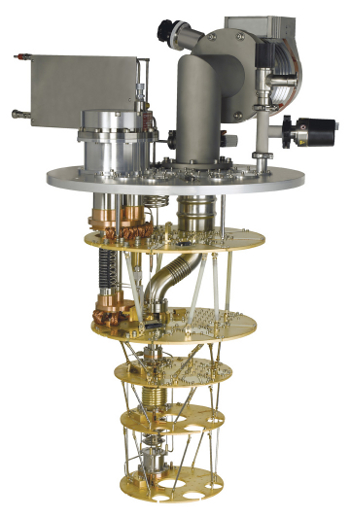Oxford Instruments NanoScience is delighted to have successfully installed its 100th Triton Cryogen-free dilution refrigerator. Its new home is the Quantum Nanoelectronics Group from the Catalan Institute of Nanotechnology (ICN), in Barcelona and it will be used to study the electrical and mechanical properties of carbon nanotubes and graphene. The NanoScience division is part of Oxford Instruments Nanotechnology Tools business sector which offers an extensive toolbox for exploring the future of Graphene including its fabrication, characterisation, manipulation and measurement.
 Triton Cryogen-free dilution refrigerator from Oxford Instruments
Triton Cryogen-free dilution refrigerator from Oxford Instruments
Triton™ is an award winning product which allows you to cool samples down to less than 10 mK without the need for liquid helium. It can be also be integrated with superconducting magnets for applications requiring a magnetic field. Its success relies mainly on its convenient Cryofree® operation and its potential for customisation to suit the most demanding applications such Quantum processing. Also its reliability and the absence of any need to refill with helium, makes it possible to perform experiments remotely, at home or when travelling.
Prof Adrian Bachtold, Principal Investigator of the Quantum Nano-Electronic Group and scientific staff at the Catalan Institute of Nanotechnology in Barcelona, commented: "We are delighted to have received our new Cryofree dilution refrigerator and integrated magnet. The installation went perfectly and we are already in a position to perform our first experiments three months after placing our order. We are working on a project to take advantage of the unique properties of carbon nanotubes and graphene for the fabrication of nanoelectromechanical resonators. The new Triton will be used to study these resonators in the quantum limit."